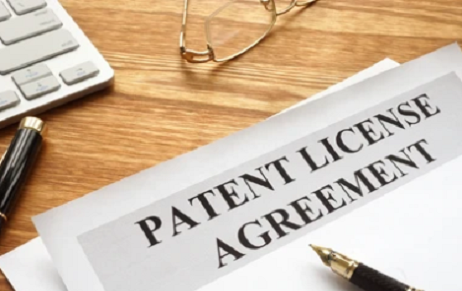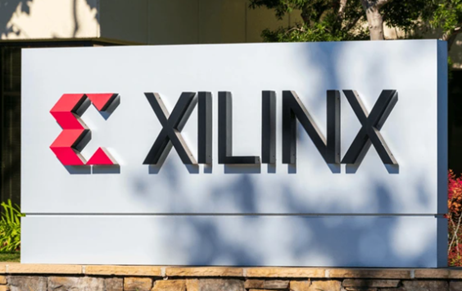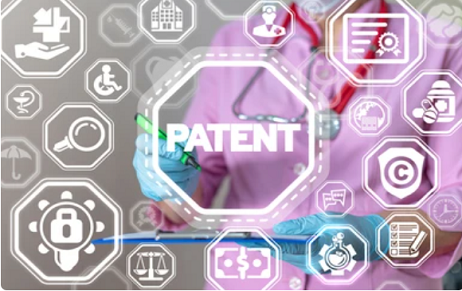Xilinx is a leading technology company focused on innovation and creating and monetizing its Intellectual…
A Comprehensive Guide to Patent Licensing and Filing Procedure in Turkey
Introduction
Turkey has become a regional economic powerhouse with a flourishing economy and a thriving tech sector which attracts the businesses and individuals eager to capitalize on its market opportunities. As the competition is growing day by day it is important to protect the Intellectual Property Rights for both the domestic as well the international stakeholders. Among the various forms of Intellectual Property Protection, Patents play a crucial role in promoting innovation, encouraging Research and Development and granting the inventors in Turkey exclusive Rights.
Through this comprehensive Guide aiming to provide a detailed examination of patent licensing and filing procedure in Turkey, shedding light on various types of patents, key legal aspects and crucial considerations for businesses and individuals who are looking to protect their Innovative creations. Any organization wishing to enter this dynamic industry and capitalize on its growth and success must be familiar with the intricacies of patent law in Turkey.
[Image Sources : Shutterstock]
The Importance of Patents as a form of Intellectual Property in Turkey cannot be emphasized. They act as a powerful instrument that encourage technological advancement, creativity and invention. By granting exclusive rights to the inventions, patents give businesses and inventors a competitive edge, encouraging additional research and development. As a, result patents have become invaluable assets for businesses, attracting investors and in enhancing market credibility. The purpose of this blog is to provide the readers with in-depth knowledge of the patent licensing and filing procedure in Turkey.
Types of Patent in Turkey
- National Patents: For a 20-year period, national patents may be filed in Turkey and registered with the Turkish Patent and Trademark Office (TurkPatent)[1]. Within six months of the publication of the grant decision in the official patent bulletin of TurkPatent, opposition against national patents can be raised.
- International Patents: International Patents that designates Turkey are treated as National patents these are valid for 20 years from the application date. This gives foreign inventors a way to request protection for their creations in Turkey.
- Utility Models: Utility Models: To qualify for a grant in Turkey, utility models do not need to meet the criteria for an inventive step but rather must be novel and have industrial applicability. Protection for Utility Models are for 10 years starting from the date of filing.
- Short-Term Patents: Previously as per the Decree-Law 551[2], which protected patents, short-term patents could be issued for a period of seven years without a substantive examination. The present IP Code has abolished the short-term patent provisions, although patents issued under the previous Decree-Law are still valid and enforceable.
What is meant by Patent Licensing?
Licensing a patent involves the patent owner granting the permission to another individual or organization to use, manufacture, sell or otherwise exploit their patented innovation in accordance with agreed terms and conditions[3]. This agreement specifies the range of usage, the region or territory to which it applies, the duration of the license and any payment which the licensee must pay the licensor, such as royalties.
A patent owner may opt to grant license to their invention to a third party due a variety of reasons. Once such common scenario is when the patent owner lacks the necessary manufacturing facilities to produce and sell the patented invention in a large scale. By licensing the patent, they enable others to make use of their invention by licensing the patent in exchange of royalties.When the patent owners manufacturing capacity is insufficient to satisfy the market demand in that situation also the licensing of the patent is done by the patent owner. In such cases the patent owner may grant a license to another manufacturer in order to access other revenue sources.
Additionally, a patent owner can focus on a limited number of geographical markets and decide to license the invention to other parties with a greater interest in other areas. This way both parties can build mutually beneficial business relationship. Licencing enables the licensor to keep ownership and property rights over the patented innovation, as opposed to selling or otherwise giving a patent to another party. This indicates that the technology is still under the control of the licensor, who still reaps the rewards of the licensee’s use or commercialization of the invention.
Patent Licensing in Turkey
It constitutes a legal mechanism facilitating patent owners to confer specific permissions upon external parties, encompassing utilization, production, and marketing of the patented innovation. Within Turkey, patent owners retain the option to engage in licensing agreements, defining usage terms, with both non-exclusive and exclusive licensees. The domain of patent licensing in Turkey operates under the purview of the Intellectual Property Law, defining the conditions under which licensing contracts between patent holders (referred to as licensors) and other entities (referred to as licensees) can be established. This framework accommodates the potential for bestowing both exclusive and non-exclusive licenses, thereby enabling licensors to uphold their inherent rights while transferring certain usage rights to licensees.
- Exclusive Patent Licensing: –Exclusive licenses are the ones which are given to the licensee when they possess some unique or extraordinary skills, knowledge through which the they can be easily marketed and which increases the viability of the invention in commercial manner. These types of agreements are good for both the person owning it namely the patent owner as he gets the royalty and compensation for it and on the other hand for the licensee as they get a competitive edge from this patented invention.
- Non-Exclusive Patent Licensing: – Through Non-Exclusive Licensing the patent owner can simultaneously grant rights to multiple licensees. This means that the licensees do not get the exclusive rights over the patented technology and the patent owner retains the power to grant licenses to the other parties for the same use of invention. This type of licensing is mainly beneficial when the patent owner wants to expand their market, promote competition or make sure their technology is used by several industries or sectors. The patent owner can make money by granting several licenses even though Non-Exclusive licenses have lower royalty rates than the exclusive ones.
Criteria and Limits on Patentability in Turkey
The requirements that need to be satisfied for an invention to be patented in Turkey are:
- Novelty
- Inventive Step
- Industrial Application.
As pointed out the invention must be a new one and there should be a creative step involved in it beyond what is already known and should have useful industrial applications to it. The law on Intellectual Property also specifies non-patentable inventions such as scientific discoveries, mathematical methods, computer programs and presentations of information. Additionally, some scientific discoveries that pertain to human body or genetic identity are not patentable.
Patent Filing Procedure in Turkey: In order to be patented the Inventors must adhere to the specified filing process in Turkey:
- Application: A patent application is required to be submitted to the Turkish Patent and Trademark Office (TPTO) by the inventors, which should be inclusive of information about the invention’s claim, specifications and if relevant drawings.
- Examination: After receiving the application from the inventors the TPTO examines the patent and make sure it satisfies the standards for novelty, inventiveness and industrial application.
- Publication:Patent is published in the Official Patent Bulletin once the TPTO has examined and approved the application of the inventor.
- Opposition Period: The interested parties have the set amount of time to object the published Patent Application
- Grant: The patent is awarded to the inventor if there are no legally sound obligations giving them exclusivity over the invention for a predetermined amount of time.
Legal Procedures for Patent Enforcement
Patent Owner may file infringement lawsuits in Turkey before specialised Intellectual Property Courts to get their rights enforced against infringers. These actions are inclusive of the following procedures and typically starts with a preliminary injunction claim:
- Preliminary Injunction: Preliminary Injunction can be requested by the patent owner to stop further infringement before the trial. Steps like these support evidence preservation and protection of rights for the patent owner.
- Evidence Gathering:To prove their cases both the sides have to submit some documents, witnesses and expert testimonies throughout the trial.
- Judgement Phase: Following the gathering of evidence, the court makes determination based on the accuracy of the allegations and the available evidence.
Burden of Proof
In patent infringement actions, the burden of proof lies with the plaintiff[4], who must demonstrate that the alleged infringement occurred. However, the defendant is also responsible for defending its position with relevant evidence.
Patent Infringement and Trial Process
The Civil Procedural Law No. 6100 (CPL) establishes a systematic schedule for patent infringement cases. Typically, the trial moves through the following stages:
- Preliminary Injunction Examination
- Exchange of Petitions
- Preliminary Examination
- Investigation Phase
- Judgment Phase
For simple cases, the entire trial procedure can take between 18 months and two years, whereas complex ones may take longer.
Appeal and Dispute Resolution
The losing party in a first-instance case has the right to appeal the decision. Turkey has two levels of appeal: first at regional courts and then at the Court of Appeal.
- Right to Appeal: The losing party in a first-instance case has the right to appeal the decision.
- Alternatives to Arbitration:While patent disputes can be subject to alternative dispute resolution (ADR) methods, such as arbitration and mediation, they are not as commonly used as court proceedings. ADR can be viable for negative declaratory and infringement actions, but invalidity disputes are generally not eligible for ADR.
Key Aspects of Patent Law in Turkey
- Infringement: Commercial application of patented invention and its embodiments are considered infringing acts according to IP code. This covers the marketing, importing or selling of goods that use the patented invention. Those who knew about the infringement or ought to have known about it are regarded as infringing parties.
- Doctrine of Equivalents: The doctrine of equivalents is taken in account by the court in patent infringement cases. Beyond the literal interpretation of the terms employed in the claims, it assesses whether the alleged product or procedure accomplishes the claimed purpose, in the claimed manner, and with the claimed outcome.
- Contributory Infringement[5]: The IP Code gives the right holder of a patent the ability to stop third parties from providing elements or means essentials to the patented invention, which would otherwise constitute infringement. Common market items or means, however, are not covered by this clause unless they encourage uninvited parties to engage in unlawful behaviour.
- Invalidity: Patents may be deemed invalid for a variety of reasons, including insufficiency, additional subject matter, lack of novelty, lack of inventive step, and industrial usefulness. Scientific ideas, computer programmes “as such[6],” and techniques for playing games or engaging in mental activities are a few examples of topics that are not considered inventions and are thus not susceptible to patent protection.
- Compulsory License: The IP Code authorises compulsory licences in certain situations, such as when pharmaceutical items are exported to foreign countries to serve public health needs, when a patent is not used, and when acts are taken that limit or violate competition laws.
- Bolar Exemption:The Bolar exemption enables the exclusion of patented inventions from trial-related activities, such as the registration of pharmaceuticals and testing necessary for registration.
- Exhaustion of Rights:Once a patentee puts their patented invention on the market, the patent rights are exhausted. The IP Code adopts the principle of international exhaustion of rights.
Conclusion
Its important for the intellectual property rights for any business or individual to flourish in the Turkish market. Patent licensing and filing acts as a cornerstone for the protection so that the inventors and innovators have the power to secure their valuable creations that they have created investing their time and patience. These businesses can confidently channelize the patent landscape in the Turkish market thoroughly by understanding the Turkish legal framework, patentability criteria and enforcement mechanism.
The conclusion tells about the importance of protection of patent in the competitive environment of Turkey. The blog tells that it is important to obtain the patent not only to protect the inventions of the patent holder but it also opens new opportunities to collaborate and partnership with new businesses. So, it’s important to delve in the intricacies of the patent filling and licensing process of Turkey which is highlighted here.
Author : Srishti Bajaj, in case of any queries please contact/write back to us via email to chhavi@khuranaandkhurana.com or at IIPRD
References
- https://www.wipo.int/patents/en/faq_patents.html#accordion__collapse__34
- http://www.turkpatent.gov.tr/
- https://uk.practicallaw.thomsonreuters.com/3-519-2158?transitionType=Default&contextData=(sc.Default)
- https://turklegal.com.tr/resources/public/en/legal/Turkish-Industrial-Property-Code-in-English.pdf
- https://www.mondaq.com/turkey/civil-law/1147264/overview-of-turkish-litigation-practice–2021
- https://turklegal.com.tr/en/faqs/patents/faqs-patents-recording-license-agreements-in-turkey.html#:~:text=There%20are%20two%20types%20of,for%20the%20same%20patented%20invention.
- https://www.aksoy-ip.com/post/licensing-of-intellectual-property-rights-in-turkey
[1]http://www.turkpatent.gov.tr/
[2]Decree-Law No. 551 on the Protection of Patent Rights in Force
[3]https://www.wipo.int/patents/en/faq_patents.html#accordion__collapse__34
[4]Article 190 of Civil Procedural Law No. 6100
[5]Article 86 of Industrial Property Code
[6]Article 82 of Industrial Property Code




